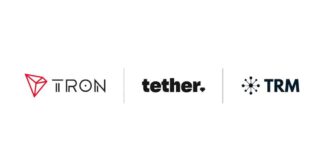A small group of traders, or possibly a lone individual, have been betting heavily on former President Donald Trump’s odds on Polymarket, a crypto-based prediction market. This has caused some concern among supporters of vice president and Democratic nominee Kamala Harris, who believe the markets are being manipulated. The Wall Street Journal even speculated that four Polymarket accounts have collectively pumped about $30 million of crypto into bets that Trump will win.
While it’s possible that there is a lone bettor who strongly believes in Trump’s chances, it’s not necessarily evidence of manipulation. Aubrey Strobel, a communications partner at Bitcoin app developer Trust Machines, pointed out that Trump’s odds are also rising on other platforms such as Predictit and Kalshi. This indicates that Trump’s rally in the prediction markets may not be solely due to manipulation.
Bloomberg columnist Matt Levine also argued that the large bets on Trump are not necessarily evidence of manipulation. He explained that markets reward those who take risks to express their views, and the identity of the traders is irrelevant. In essence, markets reflect all available information, and if you disagree with the market, you can bet against it.
If you believe that the Polymarket whale has influenced the price of the Trump contract and you think they are wrong, you can bet against them by going long on Harris. This allows traders to express their views and potentially profit if their beliefs are correct. Even if the whale is misinformed, traders will adjust the odds as new information is incorporated into the market.
However, even if the trader was attempting to manipulate the market to make a Trump victory appear more likely, it may not necessarily benefit Trump. The $30 million could have been spent on other methods to influence the election, such as advertising in battleground states. Additionally, Polymarket has mechanisms in place to adjust odds if they suspect trades are made for reasons other than financial gain.
Prediction markets like Polymarket provide valuable insights into elections by delivering information faster than traditional sources like polls and pundits. Traders have a financial incentive to surface nonpublic information, allowing election watchers to see real-time probabilities of victory for all states. This can be more informative than traditional sources and can provide a simple estimate of each candidate’s odds of winning.
It’s important to note that a lead of 60% to 40% on a prediction market is not equivalent to a polling lead of the same margin. Prediction markets are high-beta derivatives of polls, meaning that even small percentage differences can have significant impacts on the odds of victory. Despite Trump’s rally on Polymarket, the race remains extremely close.
In conclusion, while concerns about manipulation in prediction markets exist, markets are designed to reflect all available information. Traders can express their views and potentially profit from their beliefs. Prediction markets offer valuable insights into elections and can outperform traditional sources in delivering real-time information on candidates’ odds of victory.

















